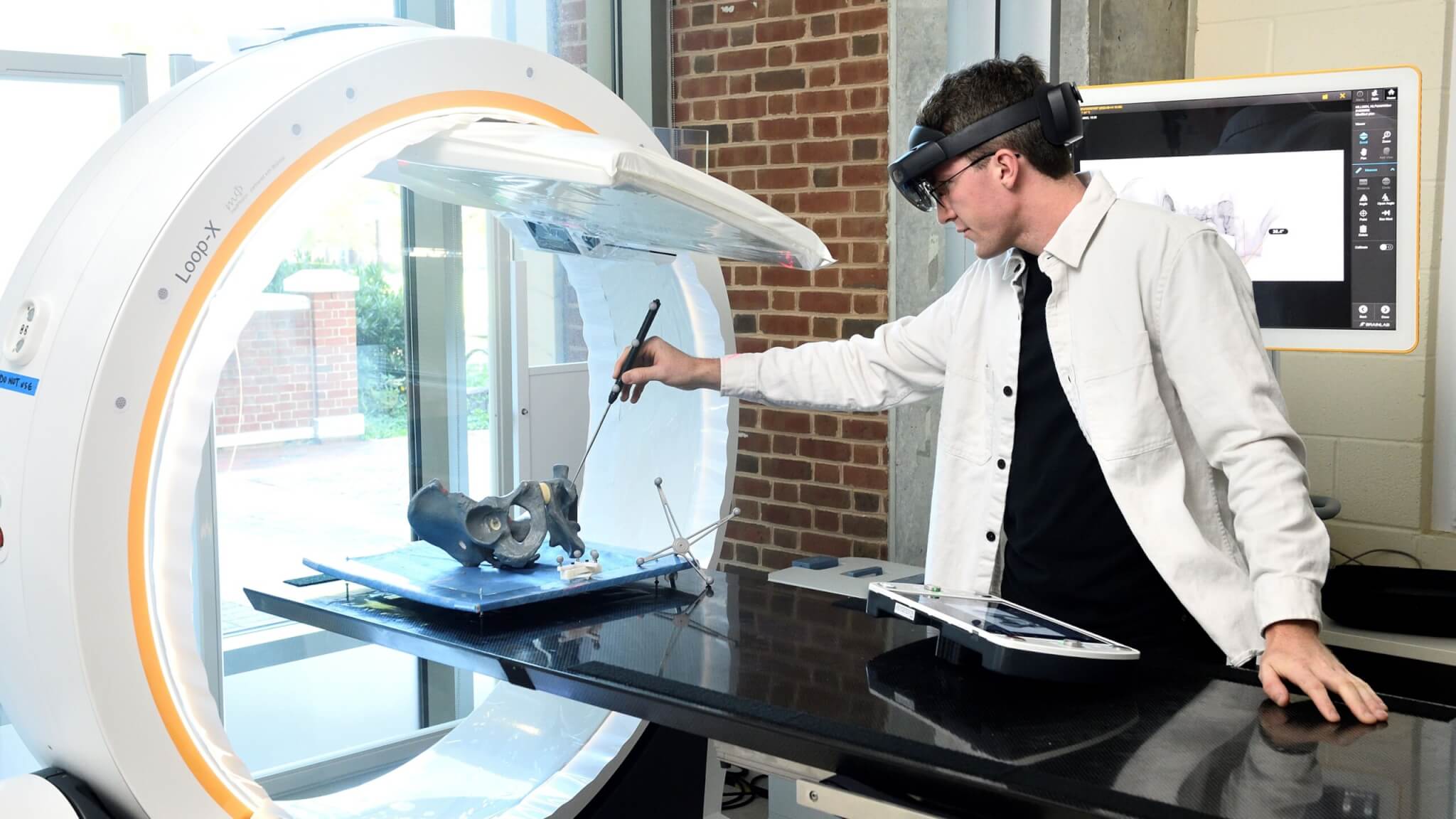Smarter surgery with Loop-X at Johns Hopkins University

Johns Hopkins’ Whiting School of Engineering and School of Medicine is using the Brainlab Loop-X Mobile Imaging Robot, making it the first academic institution to acquire this cutting-edge technology for research purposes.
Principle investigator Mathias Unberath and his team at the Johns Hopkins’ Department of Computer Science Advanced Robotics and Computationally AugmenteD Environments (ARCADE) Lab will use Loop-X robotic imaging capabilities to develop an autonomous, integrated system that can automatically take and interpret X-Ray scans. The researchers are exploring new frontiers in surgical robotics and human-robot interaction with the ultimate goal of simplifying complicated procedures and expanding the capabilities of smart operating rooms.
The Brainlab platform is able to assist the researchers in creating intelligent systems that can perceive their surgical environment, understand high-level surgical tasks, and plan and execute image-guided surgery actions more effectively than current systems. Loop-X can even be controlled by augmented reality and voice commands, thereby making its use more intuitive as well as reducing the training time needed before the system can be integrated into operating rooms.
“Having Loop-X allows us to conduct world-class research on the future of image-guided surgery in a fraction of the time. So many things that used to be time-consuming are taken care of automatically, such as obtaining high-quality 3D scans and registering images to the real world”, says Benjamin Killeen, a PhD student in the Whiting School’s Department of Computer Science and a member of the ARCADE Lab.
More information in the full press release: Seeking smarter surgery – Department of Computer Science (jhu.edu)
Learn more about Loop-X: https://www.brainlab.com/surgery-products/overview-platform-products/robotic-intraoperative-mobile-cbct/